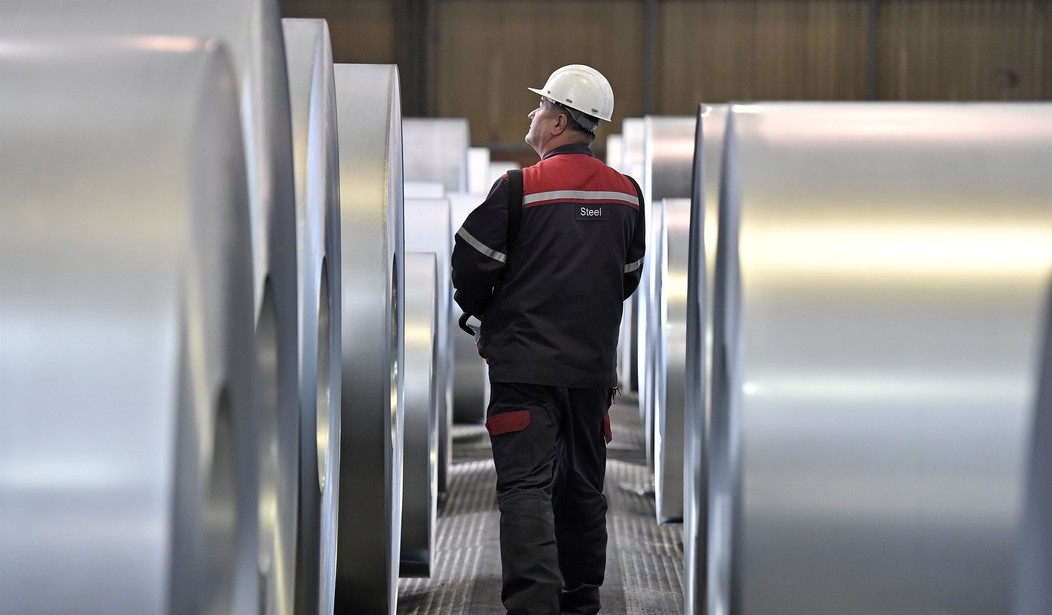For years, there has been a growing disconnect between union leadership and the workers they claim to represent. In places like Ohio, the state I used to represent in Congress where more than 12% of the workforce is unionized, this is a growing concern.
In too many recent instances, this has meant taking stances on issues that seem to contradict the interests or preferences of a significant portion of their membership and that of the country more broadly. From the prolonged school closures pushed by several teachers’ unions during the pandemic despite the wishes of many to return to in-person learning, to the resistance some dockworkers unions have shown to automation measures that are necessary for long-term competitiveness and job security, many members feel that their unions no longer effectively advocate for their true interests.
This is especially true in rapidly changing industries where flexibility and adaptation are crucial. Often the result of entrenched union leaders that prioritize political alliances over worker welfare or hold outdated ideologies, they have in many cases lost touch with the realities of modern workplaces. Take for example, the proposed acquisition of U.S. Steel by Nippon Steel which will have a meaningful positive impact for thousands of steelworkers and autoworkers in Ohio and across the country who are directly employed by the storied American company or manufacture products with its steel.
Given the significant changes the American steel industry has experienced over the last fifty years and the fact that Nippon Steel is a foreign-owned company based in Japan there was some skepticism at the beginning of the process. However, upon closer inspection, such concerns should have been allayed. The specifics of the deal as outlined does not threaten jobs, nor does it undermine the ability to keep pace with foreign companies or jeopardize competition in a key American sector. In fact, it appears to provide a pathway to reinvigorate the steel industry in Ohio and America more broadly.
Recommended
For starters, Nippon Steel has committed to keeping U.S. Steel a fundamentally American company. Not only will it retain its name and brand, but core senior management as well as a majority of board members at the company would continue to be American citizens. Nippon Steel has further pledged to honor all collective bargaining agreements and is committed to “creating long-term value for our companies’ stakeholders,” ensuring job protection and fair treatment for steel employees.
Nippon Steel's proposal also brings substantial investments to the table. The company has pledged nearly $3 billion to upgrade U.S. Steel’s older factories, funds that will be consequential for keeping them competitive and for keeping worker’s jobs. This infusion of capital is critical, especially considering the admission by the CEO of U.S. Steel that “we wouldn’t do that if the deal falls through” because such funds would otherwise be unavailable.
Moreover, this deal presents a unique opportunity to partner with one of America’s closest allies to counter China's dominance in the global steel market. The combined entity would become the world's second-largest steel producer, capable of effectively competing with Chinese state-backed giants. This scale is crucial for stemming the tide of cheap Chinese steel and leveling the playing field for American workers. Additionally, strengthening economic ties with Japan through this venture aligns with broader strategic interests in the Asia-Pacific region.
Yet despite these facts, the United Steelworkers – North America’s largest industrial union – has been a vocal opponent of the deal. Whether this resistance is a ploy to provide the Democratic friends of its senior officials a wedge issue in an election year, the result of co-option by crony capitalists who are fearful of the competition a revitalized U.S. Steel could bring to the domestic market, or something else, the decision of the United Steelworkers leadership to take this position is baffling.
Such a shortsighted approach not only overlooks the significant potential benefits for workers both in the Buckeye State and the United States more broadly, it also stands in direct opposition to the sentiment of many members of their union who work at U.S. Steel and have expressed their support for the deal after recognizing the potential benefits that it could bring
In an era of rapid technological change and global economic shifts, workers need representation that is forward-thinking and truly aligned with their interests. The current model of union leadership, as exemplified by the United Steelworkers' resistance to this deal, is proving to be increasingly out of touch and potentially harmful to the very workers in Ohio and across the country that it claims to protect.
It has become clear that it is time for a new kind of worker advocacy. Instead of holding onto the outdated system that has empowered union bosses to oppose deals that could bring billions in investment and secure domestic jobs, we must find new ways to embrace innovation, recognize global realities and truly put American workers first.

























Join the conversation as a VIP Member